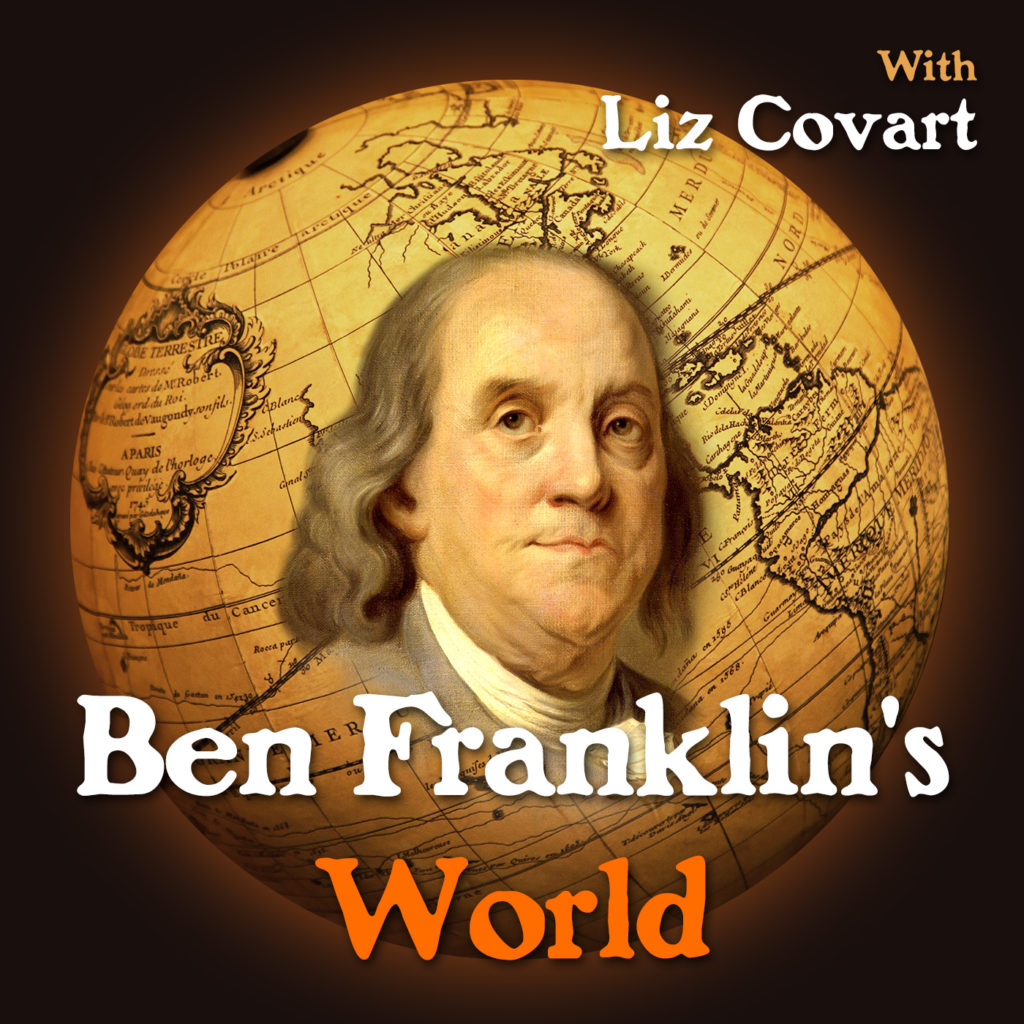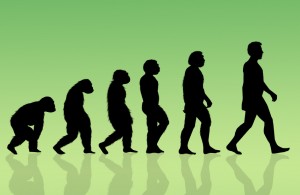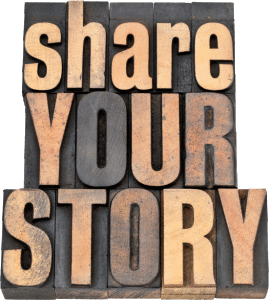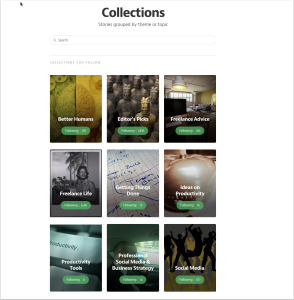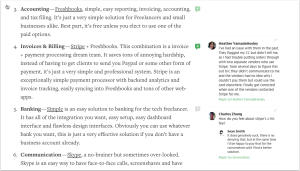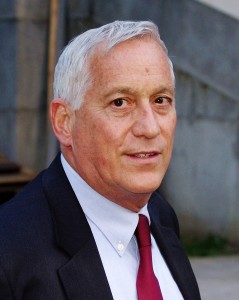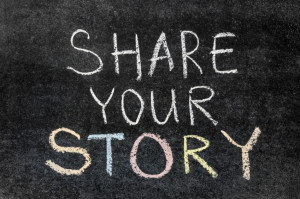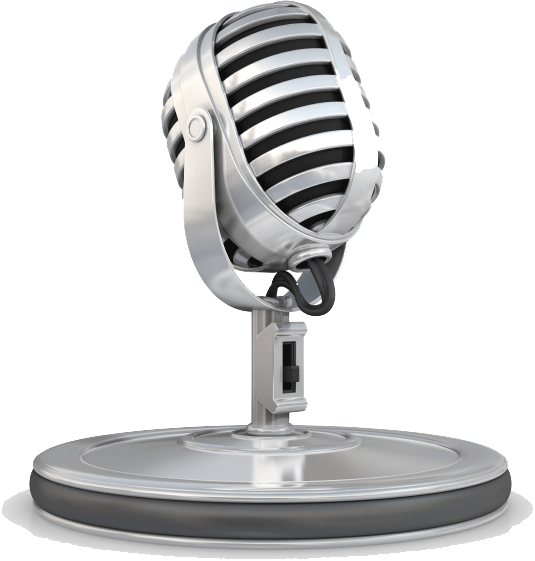 Over the last 9 months or so my brain has been stuck on the idea that I want to start a podcast.
The podcast provides a perfect medium to convey historical knowledge to a wide audience and for research-driven historians to interact with the larger public.
Over the last 9 months or so my brain has been stuck on the idea that I want to start a podcast.
The podcast provides a perfect medium to convey historical knowledge to a wide audience and for research-driven historians to interact with the larger public.
In this post you will learn why I think starting a podcast is a good idea and about the work I need to do before I launch one.
I hope you will read this post to the end as my idea still needs refining and I could really use your feedback on it.
Why A Podcast?
 Social media authorities such as Michael Stelzner have declared 2014 to be the “Year of the Podcast.”
Social media authorities such as Michael Stelzner have declared 2014 to be the “Year of the Podcast.”
Why?
In 2014, smartphone ownership by adults will increase to over 50%. Additionally, smartphone manufacturers and app providers such as Apple and Google are making it easier for smartphone owners to find, subscribe to, and download podcasts.*
Podcasts allow listeners to create a customized radio station that will always play topics they find interesting on a schedule that conforms to their needs.
There’s An Interest in History
People are interested in history.
As History Camp, C-Span’s American History TV, and the many television shows based in historical periods (Downtown Abbey, Mr. Selfridge, Turn, Outlander, and Sleepy Hollow, to name but a few) demonstrate, people want to interact with and learn more about their history.
History Camp and American History TV, in particular, also show that history lovers want to interact and connect with historians.
The podcast market underserves these history-minded people.
 A Problem with Format
A Problem with Format
Over the last 9 months, I have been thinking about how I can start a podcast that showcases well-researched, historical narratives about early American history.
Initially, I toyed with the idea of presenting 15-20 minute narratives. I have a stack of ideas about mining my American History survey lecture notes, dissertation chapters, and freelance article research for stories and information.
However, I know that 15-20 minutes of speaking equals about 10-12 pages of text.
The most successful podcasts release a minimum of 26 shows a year; a new show every 2 weeks.
This production schedule makes my initial format unsustainable. I want to produce a podcast, but I also want time to work on my other projects, such as my book.
Additionally, my research is narrower than most people’s interests.
Many of my shows would focus on the history of upstate New York or Boston, the areas I have researched over the last 14 years. In the future, they would become Connecticut and Revolutionary War centric as my next project will take me into both of those areas.
My podcast has to be more expansive than my own research to attract a wide audience.
 Eureka! My Plan
Eureka! My Plan
After wrestling with these thoughts, the solution finally came to me last week: An interview-focused podcast with occasional historical narratives written by me.
As you know, I am passionate about making well-researched history accessible for everyone. It frustrates me that too many of our colleagues do not make enough attempts or time to share their wonderful and important research with non-academics.
My solution of an interview-based podcast will allow me to help historians engage with the public.
My interviews will focus on their research and new books. It will allow interviewed historians to advertise their work and explain to non-academics why their work matters and why it is worthy of their attention.
As the interviewer, I can can ask my guests questions that will encourage them to share their information through the engaging examples and characters they use in their books, articles, and dissertations.
I also hope my podcast will expand our discussions of history.
I plan to interview academic historians, librarians and archivists, museum professionals, historians at historical societies, and independent historians.
Work to Do
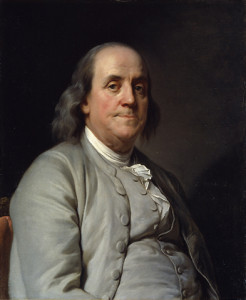 Now that I have found a solution to my format problem, I am motivated to work on launching my podcast, which I have tentatively titled: “Ben Franklin’s World.”
Now that I have found a solution to my format problem, I am motivated to work on launching my podcast, which I have tentatively titled: “Ben Franklin’s World.”
I plan to interpret “Ben Franklin’s World” broadly.
Born in 1706, Franklin was a world traveler and consummate learner. Franklin helped found the United States and influenced technological developments after his death.
The podcast will center on early American history. I believe that the spirit of Ben Franklin will allow me to cover important issues in Atlantic History, European History, and North American History between the 17th and early 19th centuries.
I have a lot of work before I release my first episode.
First, I must take the video course I purchased on how to edit, tag, and publish podcast files using GarageBand.
Second, I need to brainstorm a list of interviewees.
Third, I need to schedule and conduct Interviews.
Fourth, I need to create 3-6 months worth of episodes before I release the first 5 episodes.
There are also a lot of other smaller tasks that I must research and do before I launch.
I would like to release my podcast before the end of the year.
What Do You Think?
What do you think about my podcast idea?
Do you like my title “Ben Franklin’s World?” Do you have a suggestion for a different title?
Would you like to help or be on the show?
Send me an e-mail, tweet, or leave a comment.
*Links to podcasts about podcasts where you will find some fascinating statistics: "Interview with Michael Wolf of NextMarket Podcast" and "Interview with Podcasters Michael Hyatt and Chris Brogan."

